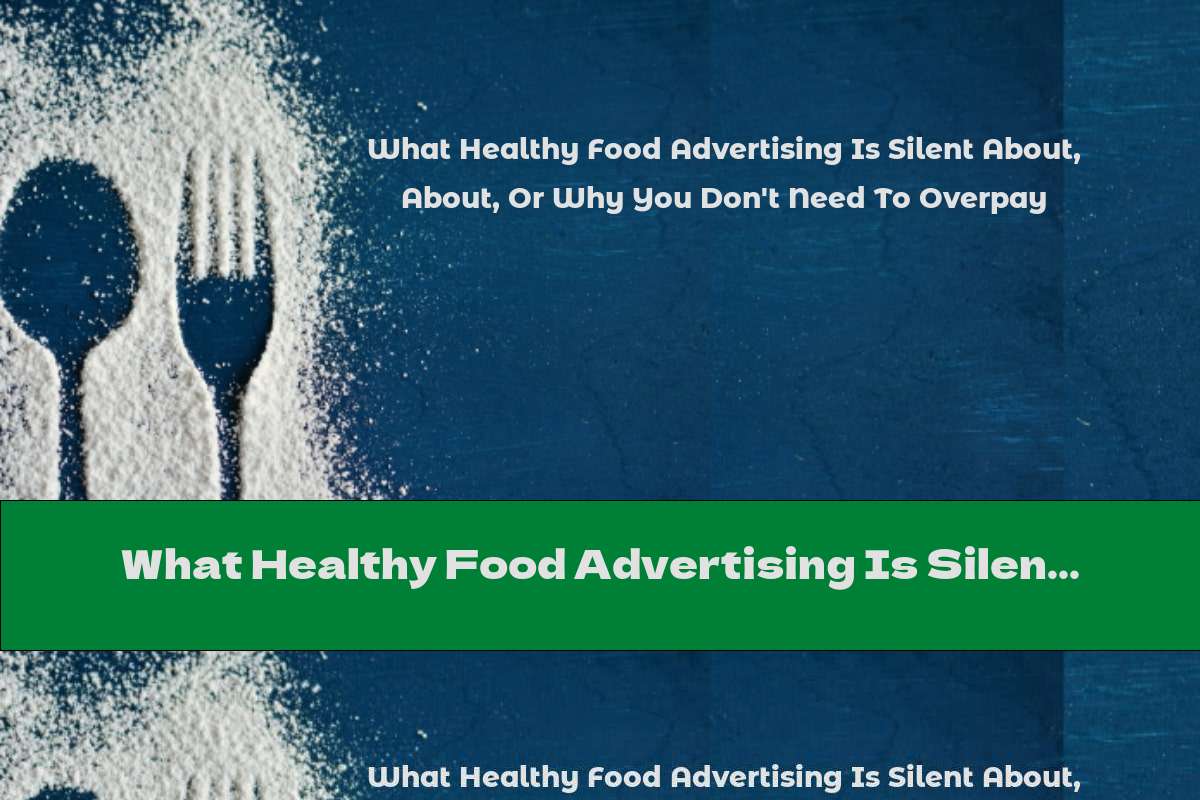What Healthy Food Advertising Is Silent About, Or Why You Don't Need To Overpay
 Author: Victoria Aly
Time for reading: ~2
minutes
Last Updated:
February 16, 2026
Author: Victoria Aly
Time for reading: ~2
minutes
Last Updated:
February 16, 2026

In the wake of the popularity of healthy food, more and more eco-food stores are opening in Ukrainian cities, selling exotic cereals, mysterious green powders and purple leaves
In the wake of the popularity of healthy food, more and more eco-food stores are opening in Ukrainian cities, selling exotic cereals, mysterious green powders and purple leaves that promise youth, beauty and longevity. Assessing the growing demand, supermarkets willingly put "superfoods" on the shelves, and we are surprised to find ourselves in line for trendy brown rice or avocado. But is it profitable?
The easiest way to find out the advantages of popular "healthy" products over ordinary ones is to compare their nutritional value. Here are some vivid examples that will save you from unjustified spending.
Spirulina vs. SpinachToday, spirulina is advertised as a universal preventive measure against atherosclerosis, thyroid diseases, migraines, disorders of the gastrointestinal tract, impotence and diabetes. On any site that sells bio-supplements, you will find a significant list of vitamins, minerals and amino acids contained in this miracle algae. Well, it's time to find out that ordinary spinach is not inferior to it in any way. In nothing but the price.
The fashion for coconut water came to Ukraine in 2013. Then fitness fans dubbed it the best sports drink that "contains everything a modern active person needs." The advertisement says that young coconut juice increases tone, relieves fatigue, improves metabolism, restores water balance and normalizes weight. Another advantage is the absence of preservatives and added sugar. It sounds good, but it will be more rational to drink a bottle of mineral water without gas in a bite with a banana. And here's why.
Any cabbage is worthy of becoming a frequent guest on your table. It contains a lot of fiber and vitamin C, so doctors recommend using it to strengthen immunity, improve digestion, and prevent constipation and hemorrhoids. But if you saw a laudatory ode to kale on a culinary site, carefully study our comparison table. Broccoli is the twin vegetable of kale, with the only difference being that it contains much less vitamin A. Do you need this particular vitamin? Then feel free to skip this point.
In restaurants of Asian cuisine, everyone can try traditional Korean kimchi - spicy fermented vegetables, the basis of which is Beijing cabbage. And although Koreans consider kimchi one of the main national symbols, attributing to it rejuvenating and anti-cancer properties, traditional Ukrainian sauerkraut could well be a worthy competitor to the overseas dish.
Chia seeds vs flax seeds
Chia seeds have been called "nature's most powerful antibiotic" with "unique" nutritional properties, replacing milk, oats, oranges, bananas, nuts, fish and any food you can imagine. That is, until you imagine flax seeds. Yes, they will cope with the prevention of atherosclerosis, improve the work of the digestive system and clean the liver with the same success.
When you go to the supermarket, do not forget that exotic greens or alien-type fruits are not always tastier than ordinary products, and their sky-high price is often dictated not by health benefits, but by shipping costs from distant countries.
Related Articles
- The Ultimate Guide to Hickory Smoked Bacon in Nutrition and Healthy Eating
- Nutritional Benefits of Fruit Skewers in Honey Syrup: A Delicious and Healthy Recipe
- Nutritional Benefits of Fruit Skewers in Honey Syrup: A Healthy and Delicious Snack
- Nutrition for Respiratory Health: Supporting Your Lungs with the Right Foods
- The Nutritional Benefits of Salty Popcorn: A Healthy Snack Option
Top Nutrition Articles Today
- . The Benefits of Myra E: A Powerful Vitamin E Supplement
- . Granadilla - Health Benefits
- . Plain Bagel Calories
- . Nutrition Trends for 2026: Superfoods, Recipes, and Balanced...
- . The Power of Nori: Health Benefits and Nutritional Value
- . The Nutritional Benefits of Quaker Oats: A Complete Guide
- . Nutrition Trends 2026: Diet Plans, Recipes, and Wellness Tip...
- . E481: Uses, Benefits, Side Effects, and Safety Regulations
- . The Role of Micronutrients in Chicken: A Comprehensive Guide
- . First Complementary Foods: What And When To Give A Child (wi...